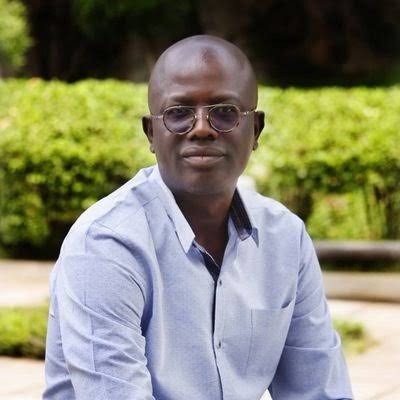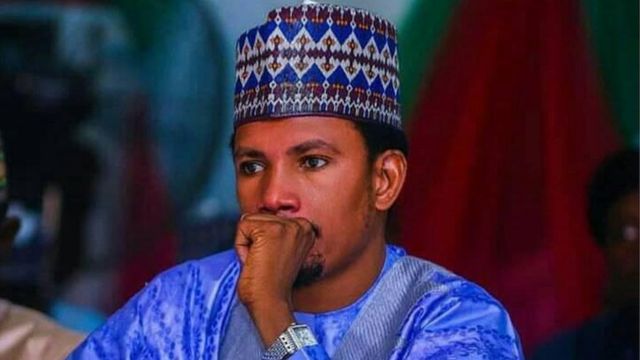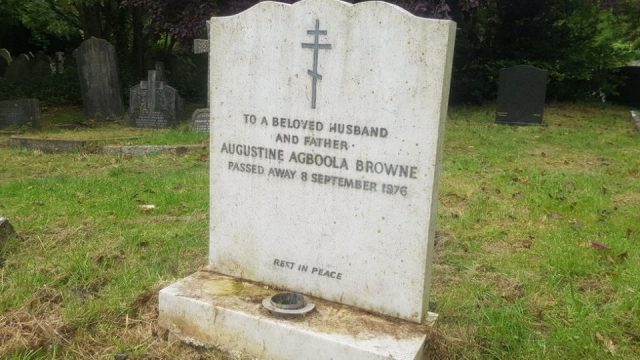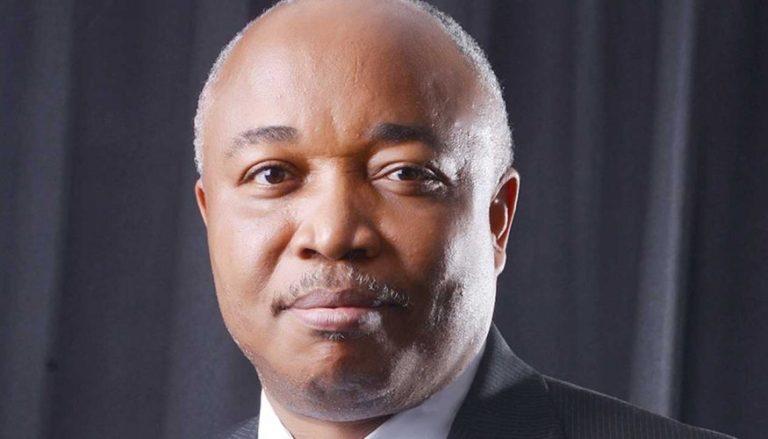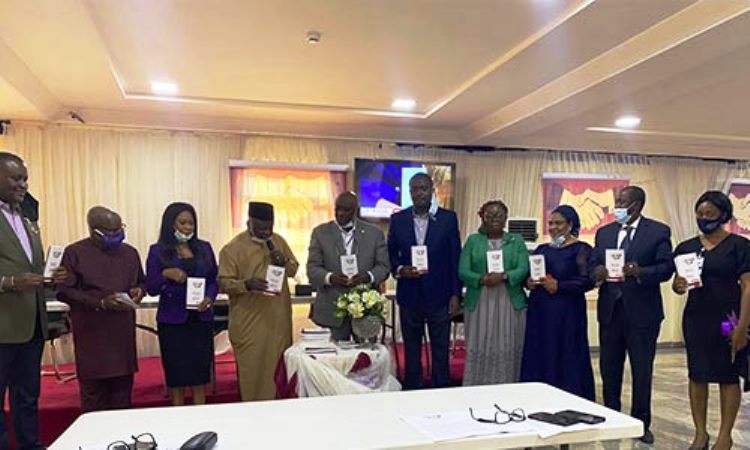By Olusegun Adeniyi
“Anyone who has followed testimonies (backed mostly by video evidence) from victims of the Special Anti-Robbery Squad (SARS) knows it would take more than feeble press statements to change the orientation of those who have been conditioned to believe they are above the law. For years, members of this notorious police unit have operated solely by their own code. So I see no reason why they would give any regard to the current directive by the Inspector General of Police (IGP), Mohammed Adamu to desist from carrying out stop and search duties and setting up roadblocks. Indeed, available reports indicate that these operatives are still very much in business across the country.”
This is not a new challenge. Several of my columns, including ‘Beyond the Brutalities of Police SARS’ (December 2017), ‘The Assassins in Police Uniform’ (April 2019) and ‘Let Me Talk to My Father before I Die’ (August 2019) recount how our policemen routinely violate the rights of citizens they are paid to protect. And while I have extraordinary sympathy for the men and women in uniform whose welfare we too often neglect, the matter may finally be reaching a denouement. With celebrities and government officials joining the campaign against the excesses of SARS, something must give.
In a 2018 piece, I highlighted the growing allegations that SARS operatives are neck deep in criminal activities and prefaced that intervention with the fact that such defiant behaviour is not peculiar to Nigeria. I particularly referenced the report in the United States of a study released in June 2016 which revealed that on an annual basis, as many as 1,100 police officers are charged with committing crimes. In the course of the study, said to be the first in US history, researchers compiled 6,724 cases involving 674 officers who were arrested more than once. According to the lead researcher, Philip M. Stinson, “Police crimes are not uncommon…Our data directly contradicts some of the prevailing assumptions and the proposition that only a small group of rotten apples perpetrate the vast majority of police crime.”
The essence of spotlighting the US report was not to excuse criminal behaviour by SARS but rather to provide a background that rogue police officers are not peculiar to Nigeria. What is peculiar to our country is the lack of accountability that has encouraged those who should protect citizens to abuse their powers without consequences. That was the point underscored in a chilling Amnesty International report released on 26th June 2020 (just about four months ago) titled, ‘Time to end impunity: Torture and other human rights violations by Special Anti-Robbery Squad (SARS)’. In the report, Amnesty International documented cases of extrajudicial executions, sexual violence, torture, extortion and other forms of brutality that reveal “a pattern of abuse of power by SARS officers and the consistent failure by the Nigerian authorities to bring perpetrators to justice.”
According to Amnesty International, “financial gain – rather than curbing armed robbery and other forms of criminal activity – appears to be one of the motivating factors of the SARS, as they constantly raid public places frequented by young people, in order to extort money from them. Evidence collected indicates that SARS officers regularly demand bribes, steal and extort money from criminal suspects and their families. Additionally, SARS officers act outside of their legal ambit by investigating civil matters and in some cases torturing detainees involved in contractual, business and even non-criminal disputes.” The damning report which critical stakeholders in the justice sector should read added: “Most victims of ill-treatment by the SARS are usually poor. Many are arrested by the SARS officers during large dragnet operations involving mass arrests, including raids on bars and television viewing centres, and ordered to pay a bribe to be released. Those who are unable to pay are often tortured, either as punishment or to coerce them to find the money. The alternative is to risk being labelled as an armed robber. In most cases, this occurs with the full knowledge and acquiescence of superior police officers.”
As weighty as that allegation may be, most of those who have encountered SARS believe it to be true. Besides, so emboldened are these criminal elements within the unit that they, sometimes at gunpoint, order their hapless victims to transfer money from their mobile handsets. Yet, despite those easy-to-trace trails and the many social media posts about their atrocities, none have been brought to justice. That’s why many believe that all the current ‘directives’ are merely to buy time. In any case, we have been down this road before. Following a similar public outcry two years ago, Vice President Yemi Osinbajo on 14th August 2018 ordered an immediate reform of SARS which led to the cynical addition of letter F (for Federal) to the name by former IGP Ibrahim Kpotun Idris. At the time, Osinbajo also directed the National Human Rights Commission (NHRC) to set up a judicial panel to investigate their activities. Nothing has been heard about that report.
For years, ill-clad (F)SARS operatives would stop citizens on street corners and subject them to ‘stop and search’ which is usually extended to telephones, laptops and iPads without any court order as required by the Cybercrimes Act. These supposed officers of the law—who dress like armed robbers, according to former IGP Mike Okiro—violate the dignity and liberty of citizens, as well as the privacy of their homes and correspondence. If you wear dreadlocks or sport tattoos on your body, you are automatically a prime target for shakedown. To secure your freedom, you or your family members must pay ransom.
Unfortunately, at a time we most need a solution to this problem, the disposition of some presidency officials is unhelpful. And because the challenge preceded the Buhari administration, there is no reason for anybody to be defensive. Besides, they fail to see the bigger picture: When, for whatever reasons, we choose to look the other way when the rights of citizens are grossly violated, the net result is a collective descent into a Hobbesian jungle where life is nasty, brutish and short. That precisely was the point Segun Sega Awosanya was making regarding the #EndSARS #ReformPoliceNG movement when the madness started years ago. And if the authorities had paid attention and done the right thing, we would probably not be where we are today.
A 2010 report by the Network on Police Reform in Nigeria (NOPRIN), in collaboration with New York-based Open Society Justice Initiative, concluded that many men and officers of Nigeria Police are more likely to commit crimes than prevent them. Titled, ‘Criminal Force: Torture, Abuse and Extrajudicial Killings by the Nigeria police force’, the report I previously cited on this page was based on a two-year investigation at more than 400 police stations in 14 states across the country. “Sex workers report being rounded up by NPF personnel for the express purpose of rape. Acknowledging the routine nature of rape by police, one police officer referred to it simply as a ‘fringe benefit’ of certain patrols,” the report claimed.
However, as prevalent as the barbarism by SARS may be, there is a method to their madness. Most of their victims, as Amnesty International has clearly stated, are poor people. There is also a global ring to this. A report by the International Justice Mission (IJM), an NGO focused on human rights and law enforcement, documented how “millions of the poorest people in the developing world are abused by corrupt police who extort bribes and brutalize innocent citizens” and for that reason, “poor people regard the police as agents of oppression, not protection.”
The list of atrocities committed by these rogue elements in the Nigeria Police is long but what rankles is the impunity with which they act because they are certain they would never be held to account. For instance, on 7th June 2005, six young Nigerians (a woman and five men) were extra-judicially executed in the Apo area of Abuja. Both the police probe panel, chaired by former IGP Okiro (then a DIG) and the federal government judicial panel of inquiry, chaired by Justice Olasumbo Goodluck, found all six policemen cul¬pable for the pre-meditated murder. Not only was the principal actor acquitted, he is now an Assistant Inspector General of Police!
Meanwhile, despite the negative reports about SARS that assail us every day in the social media, the majority of our policemen are honest professionals. And I have encountered many of them. Police as an institution also has its own peculiar challenges. Nothing exemplifies this more than the bitter power struggle that has pitched the IGP against the Police Service Commission (PSC) on the 2019 recruitment of 10,000 constables. The battle for supremacy which is now at the Supreme Court is already affecting the careers of no fewer than 112 senior police officers. It is a crying shame that for more than one year, the PSC and IGP have engaged in a public brawl over who has the power to recruit and discipline police personnel. Yet President Muhammadu Buhari as chairman of the Police Council has not deemed it fit to intervene in the interest of our national security. To worsen matters, in-fighting in almost all the critical security institutions continues.
In dealing with the issue of SARS, the police authorities must understand what is at stake. When on 6th August last year three officers from the police intelligence response unit were brutally assassinated by soldiers while ferrying Wadume (suspected kidnap kingpin) to Jalingo, Taraba State, the police waged a social media war to seek justice for their slain officers. But most of the comments that followed their posts were unsympathetic. Those who responded countered that the murdered officers only received a dose of what many Nigerians have had to suffer at the hands of SARS operatives. As much as I admire IGP Adamu, who I believe always wants to do right, regaining public trust under the prevailing environment will require more than issuing press statements.
All said, whatever may be our misgivings about SARS, the job that policemen do is a dangerous (and thankless) one, especially in a society like ours. Remuneration is also very poor. Since there is a strategic relationship between the well-being of police and the security of citizens, the total neglect of the rank and file may have resulted in a situation in which they practically have to fend for themselves and their families with guns in their hands. The temptation to go rogue is so huge that some of their personnel may have fallen into it. That is a growing challenge the authorities will have to deal with. What we therefore need is a root and branch reform of the police. And there is no better time for that than now!
Akeredolu and Public Accountability
With the Ondo State Governor, Rotimi Akeredolu and his deputy, Agboola Ajayi, slugging it out in the media and on the campaign field ahead of Saturday’s gubernatorial poll, we are hearing a lot of tales. Apparently riled by the political harlotry of Ajayi who first moved to the Peoples Democratic Party (PDP) where he failed at the primaries before jumping to pick the ticket of the Zenith Labour Party (ZLP), Akeredolu said last week: “No deputy governor has collected what he was collecting in the history of the state. I gave him N13million monthly. His predecessors did not collect as much as that. No deputy governor collects as much as that in Nigeria. I gave him enough room to operate, yet he betrayed me.” He added: “Ajayi is just a greedy man that lacks contentment. I gave him a free hand to perform as a deputy governor. I gave him two ministries to run. He constructed roads. He built a number of schools. His wife also built a number of schools.”
Before we examine that statement, it is important to note that the deputy governor has responded that what he receives monthly is not N13 million but N12 million. He also counter-attacked that “Akeredolu and members of his family skim off the purse of our state with reckless abandon.” Ajayi, in a statement by his media adviser, Allen Sowore, gave a breakdown: “The governor gets a security vote of N750 million every month. He, Akeredolu, also gets an imprest of about N150 million. His wife, though occupies no constitutionally recognised position, takes an imprest of N15 million per month. Apart from this, she collects an additional sum of N11 million from the Ministry of Women Affairs, which she runs like a potentate. Babajide, Akeredolu’s son, is also not left out in the pillage that Akeredolu and his family is visiting on Ondo State. He too takes a whopping N5 million monthly and rips off the state by taking unbelievable commissions as a consultant to the State on almost every imaginable area. All these are apart from millions and millions they get from inflated contracts awarded to family members and lackeys.”
While the game of allegations and counter-allegations continues in Ondo State, let us examine three key admissions in Akeredolu’s statement. One, his deputy and wife are also official contractors who were paid to build schools and construct roads and the governor sees nothing wrong with that. Two, ‘I gave him N13 million monthly’. Here, the governor is talking about public funds. Aside exercising the powers of the purse which ordinarily belongs to the Ondo State House of Assembly, there is an obvious lack of accountability in that statement which he failed to see. And then this: “I gave him enough room to operate, yet he betrayed me.”
A Senior Advocate of Nigeria (SAN) and former president of the Nigerian Bar Association (NBA), Akeredolu makes no pretense that everything in Ondo State revolves around his person. But what exactly does ‘enough room to operate’ mean?
On the whole, both the allegations of financial impropriety in Ondo State and the nagging criminality of SARS operatives can be located in the lack of accountability that defines public conduct in our country today. When you run a system where officials permit themselves the indulgence of giving others ‘enough room to operate’, it goes without saying that there can be no accountability. Under that situation, it is also easy for public officers to become outlaws. That is a challenge we need to collectively deal with.
Now on Amazon!
‘Olusegun Adeniyi has, in a few pages, done an excellent job of not just confronting us with the key issues in the sordid situations of sex for grades on the African Continent but he has also made several important suggestions on what to do and how to solve the problem’—Vice President Yemi Osinbajo, SAN. Interested readers can now get their copy of ‘NAKED ABUSE: Sex for grades in African universities’ on Amazon: https://amzn.to/3jEfMhF
• You can follow me on my Twitter handle, @Olusegunverdict and on www.olusegunadeniyi.com

